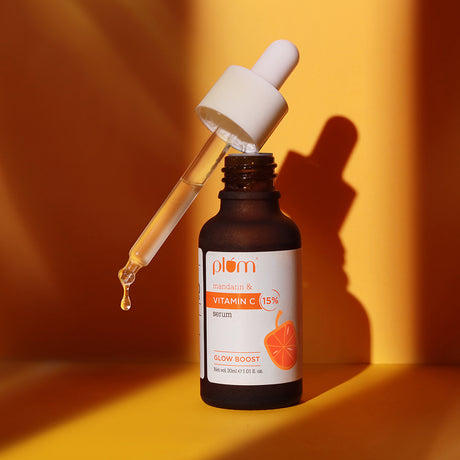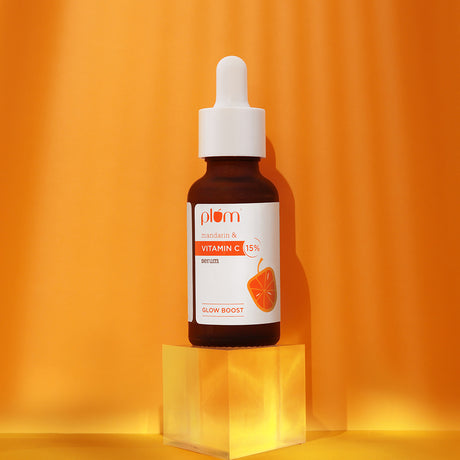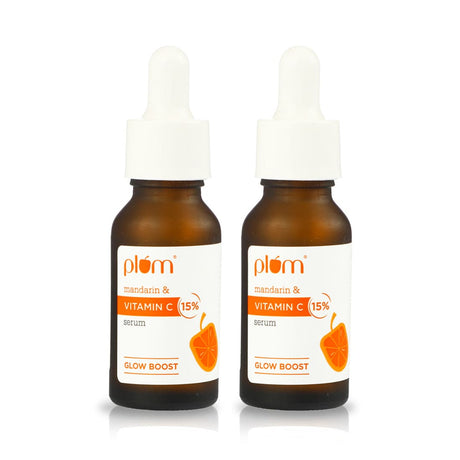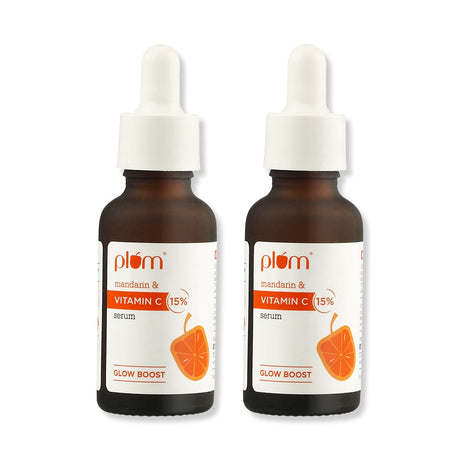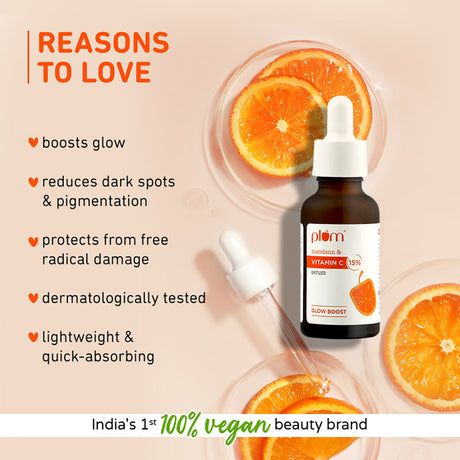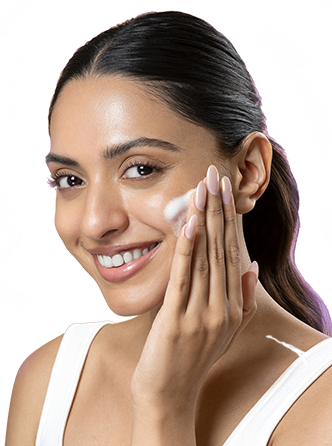
IN THIS ARTICLE
How often have you stared at yourself in the mirror, finding your skin looking a shade darker? No new tan, no beach trip, no change in your routine, yet somehow the dullness has crept in, making your skin look darker and ashy.
Honestly, it can be very frustrating and even frightening.
If you’ve ever felt the same, thinking to yourself, Why is my skin getting darker without sun exposure, you might not be imagining it, because it happens more often than you think.
By no fault of your current skincare routine, skin darkening without sun exposure can be triggered by several hidden causes, namely, hormonal changes, lifestyle habits, stress, skin allergies, or even skincare reactions, you might not understand.
Knowing about the causes and the plausible remedies will help you tweak your skincare and lifestyle.
Let’s figure out why your skin may be getting darker for no clear reason, in this blog, along with the myths surrounding it, and what you can do to bring back your natural tone safely and effectively.
Understanding Skin Darkening Without Sun Exposure
What determines the darkness of your skin, and why do people have different skin tones?
You get the color of your skin from melanin, a pigment your body produces to give your skin, hair, and eyes their color, mostly determined by your genetics.
However, if your skin senses any new change, such as irritation, hormonal fluctuations, or inflammation, it can trigger extra melanin production, causing darkness even without sun exposure.
So, if you notice your skin tone deepening or developing uneven patches indoors, that’s melanin responding to an internal or external imbalance rather than UV rays.
Some Common Causes Of Skin Getting Darker For No Reason
Here are the most frequent (and often surprising) reasons why your skin is getting darker without sun exposure:
1. Hormonal changes
Hormones play a significant role in skin color regulation. Conditions like melasma, often triggered by pregnancy, birth control, or thyroid imbalances, can cause darker patches on the cheeks, forehead, or upper lip.
2. Post-inflammatory hyperpigmentation (PIH)
Any kind of inflammation can trigger excess pigmentation in your skin. Even a small breakout, rash, or scratch can leave behind dark marks once it heals. This is because your skin produces excess pigment as part of the healing process, and often leaves a darkened skin patch.
3. Certain medications
Medications are often the most common cause of skin darkening. Some antibiotics, anti-seizure drugs, and birth control pills can increase pigmentation as a side effect. If your skin started darkening after a new treatment or medication, it is best to consult your doctor.
4. Stress and lack of sleep
When you’re under constant stress, your body releases cortisol, a hormone that can interfere with skin repair and pigment production, sometimes leading to dullness or a darker tone. Similarly, lack of sleep can cause darkness below and around your eyes.
5. Pollution exposure
Pollutants in the air can penetrate the skin barrier, trigger oxidative stress, and cause the skin to produce more melanin as protection, even when you’re mostly indoors. Which is why a regular and thorough cleansing is crucial.
6. Nutrient deficiencies
Sometimes, hyperpigmentation could also be the result of your improper food habits. For instance, a lack of vitamins B12, C, and E can cause the skin to appear darker or uneven. These vitamins are essential for cell renewal and bright, even-toned skin.
7. Skincare product reactions
More often than you might realize, the wrong choice of skincare products and ingredients can trigger reactions, leading to darkening.
Using harsh exfoliants, high-strength actives, or expired products can irritate skin and lead to pigmentation.
8. Hormonal disorders
Conditions like PCOS or adrenal imbalance can cause hormonal changes that result in darkening on the neck, armpits, or inner thighs, also known as acanthosis nigricans.
9. Dehydration and poor barrier health
A damaged skin barrier or chronically dry skin can make your complexion look darker, ashy, dull, and uneven because light doesn’t reflect evenly off rough, dehydrated skin.
10. Lifestyle factors
Smoking, excessive caffeine, poor diet, or irregular sleep can all slow skin turnover and lead to dull, darker-looking skin over time.
Myths About Skin Darkening: You Must Stay Away From
There are many myths, born out of ignorance, that might affect how you see skin darkening. Let’s clear a few misconceptions people often believe about skin getting darker:
Myth 1: Skin only darkens due to sunlight.
No, internal factors like hormones, stress, and inflammation are just as powerful triggers.
Myth 2: Whitening creams can fix it quickly.
Most over-the-counter whitening and lightening creams give temporary lightening and can harm the skin barrier in the long run. Instead of picking whitening creams, look at specific ingredients that can reduce darkening.
Myth 3: Scrubbing or exfoliating daily will help.
No, while occasional exfoliation helps remove dead skin, over-exfoliating can actually worsen pigmentation by irritating the skin further.
Myth 4: Only fair skin gets dark spots.
No, every skin tone can experience hyperpigmentation; it just shows differently.
Myth 5: It’s permanent.
Not always true. With consistent care and the right ingredients, most darkening can be managed or reversed.
Skincare Routine For Treating Darker Skin
If your skin is getting darker for no reason, you must first identify the reason for the darkness. Once you know the causes, include brightening ingredients to create a suitable skincare routine.
Here’s a gentle, science-based routine you can follow:
Morning Skincare Routine (AM)
-
Cleanse with a mild, sulfate-free cleanser. Look for ingredients like niacinamide or alpha arbutin.
-
Use a brightening toner infused with rice water and niacinamide.
-
Use vitamin C serum to reduce pigmentation and dullness.
-
Apply a nourishing moisturizer to strengthen your barrier.
-
Follow up with a sunscreen, even indoors, since blue light and pollution contribute to darkening.
Night Skincare Routine (PM)
-
Opt for double cleansing to remove buildup and dirt.
-
Apply a gentle exfoliating toner with ingredients like lactic acid, niacinamide, or Vitamin C 2–3 times a week.
-
Apply vitamin C serum or alpha arbutin serum to fade dark spots and darkness.
-
Follow with a hydrating moisturizer rich in ceramides and antioxidants.
-
You can also opt for a brightening mask containing ingredients such as licorice root, alpha-arbutin, or tranexamic acid, applied once a week.
Calendula & 10% Vitamin C Barrier Boosting + Glow Serum
10% Niacinamide Face Serum with Rice Water
2% Alpha Arbutin & Hyaluronic Acid Face Serum
2% Niacinamide & Rice Water Gel Cream
1% Vitamin C Ultra-Light-Glow Boosting Gel Cream with Alpha Arbutin
Niacinamide & Rice Water SPF 50 PA+++ Hybrid Sunscreen
How To Remove Darkness From Skin - Simple Tips:
Consistently follow your skin care routine twice a day.
-
Eat foods rich in vitamin C, zinc, and antioxidants.
-
Sleep at least 7 hours, and skin restores itself overnight.
-
Manage stress through breathing exercises, yoga, or journaling.
-
Drink enough water; dehydration makes pigmentation look more pronounced.
-
Pause harsh products and focus on hydration and barrier repair.
-
Introduce brightening actives like vitamin C or niacinamide slowly.
-
Protect your skin daily with sunscreen and antioxidants.
-
Consult a dermatologist if pigmentation persists or spreads rapidly.
FAQ
Why is my skin getting darker without sun exposure?
Your skin could be getting darker because of increased melanin production triggered by internal factors like hormones, stress, certain products, or nutrient deficiencies, not just sunlight.
Can hormonal changes cause skin darkening without sun?
Yes. Hormonal imbalances (like those from pregnancy, birth control, or PCOS) can cause hyperpigmentation such as melasma or acanthosis nigricans.
Is stress making my skin darker indoors?
Chronic stress increases cortisol levels, which can disrupt skin repair and lead to dullness or pigmentation even without sun exposure.
Can skincare products worsen skin getting darker?
Yes, if skincare products contain harsh actives, alcohol, or fragrances that irritate the skin, they can worsen your skin's darkness. Over-exfoliating can also lead to inflammation and darker patches.
How can I get rid of uneven skin tone permanently?
Permanent results depend on consistency: use brightening ingredients (vitamin C, niacinamide, arbutin), wear sunscreen daily, eat well, and maintain your skin barrier. Professional treatments like chemical peels or laser therapy may help if the pigmentation is deeper.
If your skin is getting darker for no reason, don’t panic — your body is simply signaling an imbalance. With patience, gentle care, and the right routine, you can restore your skin’s natural tone and glow — no sun exposure required.






